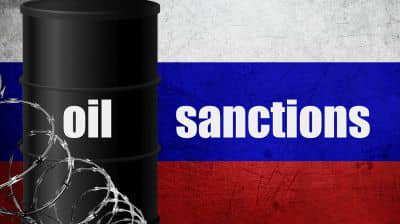Kyiv counts on concessions from European Commission if it agrees to stop import
Kyiv is ready to turn a blind eye to the violation of the European Union–Ukraine Association Agreement. The violation lies in an expected limitation on the import of the Ukrainian agricultural products but Kyiv counts on the concessions from the European Commission in response.
Source: article: EU-Ukraine Grain Deal: Details of Brussels Proposal to Resolve Export and Trade Crisis
The European Commission suggests implementing the ban on four positions in the Ukrainian agrarian sector (wheat, corn, rapeseed and sunflower) by June and allowing their transit instead.
The approval of this proposition may be beneficial for Ukraine, as it would be easier to reach an agreement with the European Commission than with the five countries that have banned the import.
Reportedly, the restriction announced by the European Commission also clearly contradicts the European Union–Ukraine Association Agreement. The treaty bans the implementation of urgent short-term restrictions for the sake of protecting the national manufacturers.
One of the Ukrainian negotiators stated that Kyiv is ready to turn a blind eye to such a violation from the EU only in exchange for certain concessions and guarantees that the limitations will not be prolonged after their end of action in June.
"That is why Kyiv proposes to formulate the reason for temporary restrictions 'in connection with a sharp change in trade routes, which caused problems for producers in some countries’", the article states.
The Ukrainian government believes that this formulation gives no chance to prolong the restriction.
"Kyiv admits the logistical problem. It agreed to talk with the EU to eliminate it. If the EU has not dealt with it within the specified time (until June), then it should no longer be a problem for Ukrainian companies," the article explains.
The likelihood that Ukraine will be able to solve the grain crisis with minimal losses exists, and it is quite high.
Yet for this, the European Commission must first and foremost convince Ukraine's neighbouring states to cancel unilateral limitations in exchange for the implementation of restrictions at the level of Brussels.
On 16 April, the Polish government announced the implementation of the ban on Ukrainian agrarian exports as well as on their transit (transit was later unlocked). Right after that, other neighbouring states of Ukraine announced similar bans: first Hungary, then Slovakia, then Bulgaria and Romania.
As Financial Times reports, Brussels has prepared emergency restrictions on the import of Ukrainian grain to the five EU member states.
Journalists fight on their own frontline. Support Ukrainska Pravda or become our patron!





